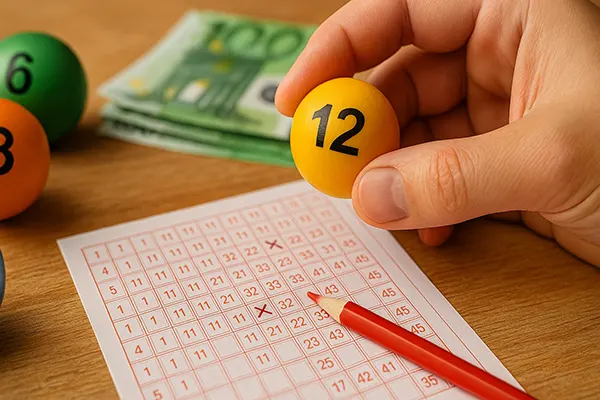The lottery, one of the oldest forms of chance-based entertainment, has undergone a remarkable transformation across centuries. Originally used for funding public works and decision-making in early civilisations, it has evolved into state-sponsored jackpot systems with billion-dollar prizes. Understanding the historical path of lotteries offers insight into how human societies have used luck, risk, and probability for communal benefit, governance, and excitement.
Early Origins and Ancient Use of Lottery Systems
The first documented lottery traces back to the Han Dynasty in Ancient China, around 205 BC. It is widely believed that lotteries were used to finance major state projects, including the construction of the Great Wall. These early games of chance resembled keno, using paper slips marked with symbols.
In Ancient Rome, lotteries took a more social function. Wealthy elites would hold private lotteries during feasts, where guests received numbered tickets and prizes ranged from silverware to slaves. Under Emperor Augustus, the lottery became public, and proceeds helped repair Rome’s infrastructure.
Medieval Europe saw lotteries emerge as charitable tools. In the Low Countries (modern Belgium and Netherlands), lotteries helped raise funds for the poor and build town defences. Town records from Ghent and Bruges document these civic draws as early as the 15th century, cementing the lottery’s role as a practical financial instrument.
The Renaissance and Birth of National Lotteries
By the 16th century, lotteries expanded into government-sanctioned systems across Europe. In 1539, France launched its first official lottery, though it quickly met resistance from social and religious authorities. In England, Queen Elizabeth I established the first state lottery in 1569 to raise funds for ports and public works.
The success of these systems encouraged widespread adoption. Lotteries became regular mechanisms for state revenue, often seen as more politically palatable than direct taxation. Tickets were sold to the public, and winners received gold, tapestries, or cash.
However, abuses and mismanagement led to growing public scepticism. In some cases, prizes were delayed or never paid. As regulation weakened, so did trust, leading several European states to abolish their lotteries by the 18th century.
Colonial Expansion and Lotteries in the New World
Lotteries crossed the Atlantic with European colonisers. In North America, they played a vital role in funding the development of early colonies. Jamestown, the first permanent English settlement in Virginia, was partially financed through a lottery chartered by King James I.
During the 18th century, American lotteries funded schools, churches, roads, and even Harvard and Yale Universities. Though not free from controversy—some were accused of corruption—they were often one of the few legal means to gather large-scale capital quickly.
Following independence, U.S. states continued to rely on lotteries. However, widespread fraud, lack of regulation, and moral criticism led to the prohibition of lotteries by many states during the 19th century. By 1890, federal law effectively banned lotteries across the country.
The Revival Era and Legal Regulation
Public interest in lotteries never truly disappeared. In the mid-20th century, as governments searched for alternative revenue streams, regulated lotteries made a comeback. New Hampshire launched the first modern U.S. state lottery in 1964, followed by New York and New Jersey.
These new systems operated under strict regulation and transparency standards. Revenues supported public education, infrastructure, and health care. The format shifted from raffles and paper tickets to televised number draws and computerised systems.
By the 1990s, multi-state lotteries like Powerball and Mega Millions emerged, allowing states to pool their prize money. Jackpots reached hundreds of millions, and occasionally even crossed the billion-dollar threshold. Public perception improved as oversight increased.

Modern Developments and the Future of Lotteries
Today, lotteries are legal in over 100 countries. They generate billions annually and fund critical public services. Digitalisation has transformed how people participate—players can now purchase tickets online, receive automated win notifications, and participate in global jackpot events.
Technological improvements have also enhanced fairness. Certified random number generators, live broadcasts, and blockchain verifications reduce fraud risk. Moreover, responsible gaming features are increasingly implemented to protect vulnerable populations.
Governments now see lotteries not only as fiscal tools but also as entertainment channels requiring ethical design. The future may bring integration with augmented reality or AI-driven game personalisation, though the core mechanism—chance—remains unchanged.
Ethical Challenges and Societal Impact
Despite regulation, criticism persists. Lottery systems have been accused of exploiting low-income participants who spend disproportionately more on tickets. Debates continue about whether lottery funding truly benefits education or merely replaces other public funding sources.
Additionally, the psychological nature of “near misses” and jackpot dreams fuels excessive spending in some players. To address this, some countries impose spending caps, promote awareness campaigns, and integrate gambling addiction support.
Nevertheless, when properly regulated, lotteries can offer both revenue and entertainment without significant harm. Transparency, oversight, and public benefit remain essential to preserving their legitimacy in the modern era.

